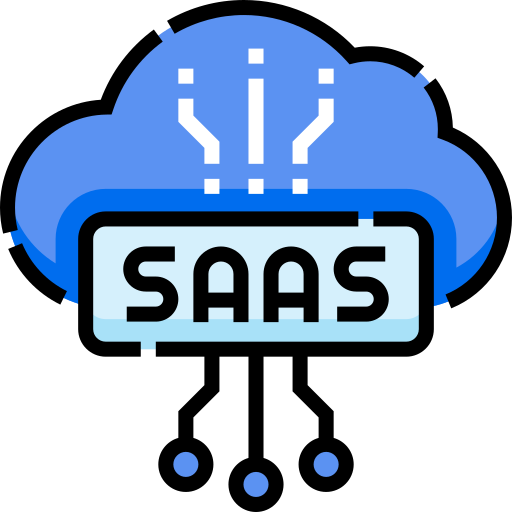The relentless march of technological progress, particularly in the realm of Artificial Intelligence, is fundamentally reshaping the software landscape. For decades, packaged software solutions – the off-the-shelf offerings like Enterprise Resource Planning (ERP) systems and Customer Relationship Management (CRM) platforms – have reigned supreme. But a growing chorus of developers and forward-thinking entrepreneurs are now asking a critical question: are these pre-built solutions still the optimal path, or is the future leaning towards bespoke applications meticulously crafted for specific business needs? This article explors the compelling arguments for bespoke software, acknowledging the inherent challenges, and offers a pragmatic guide for businesses preparing for this potential transition.
What Exactly Is Packaged Software, and Why Did It Become the King of the Hill?
Think of packaged software as the readily available, pre-designed garment in a clothing store. It's built to fit a wide range of customers, offering a standardized set of features and tools. Familiar examples include the ubiquitous Microsoft Office suite, the powerhouse CRM platform Salesforce, and the comprehensive ERP giant SAP. These solutions are designed to cater to diverse needs across various industries, providing a foundational set of functionalities that address common business challenges.
So, what propelled packaged software to such widespread adoption? Several key factors contributed to its dominance:
- Don't We All Love a Good Bargain? The Power of Economies of Scale: Developing software is an expensive endeavor. Packaged software providers can spread their development costs across a vast user base, making the individual cost per user significantly lower than building a solution from scratch. This economic advantage was a major draw for businesses of all sizes.
- Isn't Speed of Implementation a Major Advantage? The Lure of Instant Gratification: Businesses are often under pressure to implement new systems quickly. Packaged software offers the promise of rapid deployment, allowing organizations to get up and running without the lengthy development cycles associated with custom solutions. You're essentially buying a ready-made solution, eliminating the need to "reinvent the wheel."
- Doesn't Experience Count for Something? The Benefit of Years of Refinement: Mature packaged software products have often undergone years of development, testing, and refinement. The feedback from a large user base helps identify and address bugs, leading to a more robust and reliable feature set. Think of it as the wisdom gained from collective experience.
However, this "one-size-fits-all" approach, while initially appealing, often comes with significant drawbacks. Many businesses find themselves grappling with bloated systems packed with features they'll never use, struggling with limited customization options, and ultimately feeling trapped within a vendor's ecosystem. As one seasoned IT manager put it:
We ended up paying for a Swiss Army knife when all we needed was a screwdriver.
Why Are So Many Developers Starting to Feel the Pinch with Packaged Solutions?
While packaged software has served its purpose, developers on the front lines often encounter frustrations that hinder their productivity and creativity. These pain points are becoming increasingly pronounced as business needs become more specialized and the demand for agility grows.
- Isn't It a Jungle Out There? Navigating the Labyrinth of Dependencies: Modern software development relies heavily on frameworks and libraries. Packaged software often comes with its own set of dependencies, which can lead to a tangled web of version conflicts and compatibility issues. Imagine trying to build a house with mismatched Lego bricks – that's often the feeling developers experience when dealing with "dependency hell." Furthermore, inconsistent or incomplete documentation for these underlying components can significantly slow down development, especially when dealing with major updates that fundamentally alter how things work. One developer lamented, "Trying to upgrade a key library felt like deciphering ancient hieroglyphs."
- Why Does My System Feel Like It's Carrying Extra Baggage? The Burden of Unnecessary Features: Because packaged software aims to cater to a broad audience, it inevitably includes features that many businesses simply don't need. These unused functionalities can bloat the system, consuming resources and negatively impacting performance. Developers often find themselves having to work around these pre-built features, even when they don't align with specific requirements, leading to convoluted and inefficient solutions. It's like driving a truck when all you need is a motorcycle – the extra weight just slows you down.
- Don't We All Crave Freedom? The Trap of Vendor Lock-in: Once a business commits to a particular packaged software solution, they often become deeply entwined within that vendor's ecosystem. Switching to a different provider can be incredibly costly and disruptive, making businesses hesitant to explore alternative options, even if they might be a better fit. This "vendor lock-in" limits flexibility and can stifle innovation. As a CIO once remarked, "We feel like we're in a gilded cage – comfortable, but not free."
- Isn't Customization Key to a Perfect Fit? The Limitations of Off-the-Shelf Solutions: While packaged software often offers some degree of configuration, it rarely allows for the deep customization required to perfectly align with niche business processes. Developers frequently find themselves making compromises, shoehorning unique workflows into pre-defined molds. This can lead to inefficiencies and a less-than-optimal user experience.
These challenges can lead to significant inefficiencies, frustration, and ultimately, a feeling that the technology is hindering rather than helping the business achieve its goals.
How Is AI Shaking Up the Software Development Paradigm?
The advent of sophisticated AI-powered development tools is proving to be a game-changer, fundamentally altering the dynamics of software creation. Tools like OpenAI's Codex, ChatGPT, and Claude are empowering developers in ways previously unimaginable, raising serious questions about the continued dominance of packaged software.
- Can AI Really Speed Up Development? The Era of Accelerated Prototyping: AI can now generate functional software prototypes in a fraction of the time it used to take. What once required weeks of coding can now be achieved in hours. This rapid prototyping allows developers to quickly test ideas and iterate on designs, focusing their energy on refining and debugging rather than starting from a blank slate. Imagine the possibilities when you can see your vision come to life so quickly!
- Isn't Context Everything? The Power of AI-Driven, Tailored Solutions: AI models, trained on vast repositories of code, possess an unprecedented ability to understand context and suggest solutions tailored to specific problems. Instead of spending hours searching through documentation or Stack Overflow, developers can leverage AI to find the right code snippets and approaches for their unique challenges. This dramatically reduces development time and improves the quality of the code.
- Could AI Make Custom-Built Applications More Accessible? The Democratization of Bespoke Development: AI tools are making it easier and faster to build applications precisely suited to a business's specific needs. Developers are no longer solely reliant on pre-built modules or the limitations of packaged software. They can design solutions that perfectly match their workflows and requirements, creating a truly bespoke experience.
- Can AI Be My On-Demand Expert? Assistance with Complex and Niche Tasks: Complex tasks that once required specialized expertise, such as configuring intricate authentication systems, implementing robust data security measures, or optimizing performance for specific workloads, can now be significantly simplified with the assistance of AI. These tools can guide developers through challenging processes, suggest best practices, and even generate the necessary code, making it easier to build sophisticated and secure applications.
Bespoke vs. Packaged: Is There a Clear Winner?
The rise of AI-powered development begs the question: are bespoke systems inherently superior to their packaged counterparts? Let's weigh the advantages and challenges of the bespoke approach.
What Makes Bespoke Software So Appealing?
- Isn't a Perfect Fit Worth the Effort? The Advantage of Precision: Bespoke software is built specifically for your business, incorporating only the features you need. This eliminates the bloat and complexity often associated with packaged solutions, leading to improved usability and a more streamlined user experience. It's like having a tailored suit that fits you perfectly, compared to an off-the-rack option that needs constant alterations.
- Could Building It Myself Save Money in the Long Run? The Potential for Long-Term Cost Efficiency: While the initial investment in bespoke software might be higher, businesses can potentially save significant money in the long run by avoiding ongoing licensing fees for features they don't use in packaged solutions. Furthermore, the increased efficiency and productivity gained from a perfectly tailored system can lead to significant cost savings over time.
- Wouldn't a Leaner System Perform Better? The Performance Benefits of Customization: By excluding extraneous features, bespoke systems tend to be leaner and faster than their bloated packaged counterparts. This translates to improved performance, faster loading times, and a more responsive user experience. Think of the difference between a finely tuned sports car and a heavily loaded van.
- Can Software Be a Competitive Weapon? The Strategic Advantage of Bespoke Solutions: Custom-built software can perfectly align with a business's unique processes and workflows, creating a distinct competitive advantage. This allows businesses to operate more efficiently, innovate faster, and differentiate themselves in the market.
What Are the Potential Pitfalls of Going Bespoke?
- Doesn't Building from Scratch Cost More Up Front? The Challenge of Initial Investment: Developing software from the ground up requires a significant upfront investment in skilled developers, project management, and infrastructure. This initial cost can be a barrier for some businesses, particularly smaller ones.
- Who Will Fix It When It Breaks? The Ongoing Maintenance Burden: Unlike packaged solutions that benefit from community-driven updates and vendor support, bespoke systems require the business to take on the responsibility for ongoing maintenance, bug fixes, and updates. This requires dedicated resources and expertise.
- Can I Really Trust AI to Write Code? The Importance of Quality Assurance: While AI tools can significantly accelerate development, the code they generate isn't always perfect. Ensuring the quality, security, and reliability of bespoke systems requires rigorous testing and human oversight. As one software architect wisely stated, "AI is a powerful tool, but it's not a replacement for critical thinking and thorough testing."
How Can Businesses Effectively Navigate the Transition Towards Bespoke Systems?
The shift towards bespoke software, while promising, requires careful planning and execution. Here are some key steps businesses can take to navigate this transition successfully:
- What Are Our Real Needs? Identifying Critical Functionality: The first step is a thorough audit of your current software stack. Identify which features are absolutely essential to your operations, and which are underutilized or completely unnecessary. This will help define the scope of your bespoke project.
- Should We Start from Zero? Leveraging Core Frameworks and APIs: Building bespoke software doesn't necessarily mean reinventing the wheel. Utilize established frameworks and Application Programming Interfaces (APIs) as a solid foundation for your custom systems. This can significantly reduce development time and effort. Think of it as building with pre-fabricated components rather than making every brick yourself.
- How Can AI Help Us Get There? Embracing AI-Powered Development Tools: Invest in and train your team on AI-powered development tools like GitHub Copilot, Tabnine, and OpenAI Codex. These tools can significantly accelerate the development process, improve code quality, and free up developers to focus on more complex tasks.
- Do We Have the Right People for the Job? Assembling a Skilled Team: A successful bespoke project requires a skilled and well-rounded team comprising developers, business analysts, and potentially AI experts. Ensure you have the necessary expertise in-house or consider partnering with external specialists.
- Is Our Data Safe? Prioritizing Security from the Outset: Critical systems such as authentication, payment processing, and the handling of Personally Identifiable Information (PII) require the highest levels of security. Leverage well-vetted third-party libraries for these sensitive areas and conduct regular security audits to identify and address potential vulnerabilities.
- Can We Start Small and Iterate? Adopting an Agile Approach: Don't try to build everything at once. Adopt an iterative approach, starting with a Minimum Viable Product (MVP) or a prototype. Gather user feedback and gradually expand features based on real-world usage and evolving needs. This agile approach minimizes risk and allows for greater flexibility.
Is This the End of the Road for SaaS?
While the rise of bespoke software presents a compelling alternative, it's unlikely to spell the immediate death knell for Software as a Service (SaaS). Established SaaS providers possess the resources and expertise to integrate AI into their offerings, providing enhanced customization options while still retaining the benefits of their established ecosystems. Imagine Salesforce leveraging AI to allow for highly tailored workflows within their platform. However, smaller SaaS providers may find it increasingly challenging to compete with the agility and potential cost-effectiveness of bespoke systems tailored to specific needs.
What Does the Future Hold for the World of Software Development?
The future of software development is likely to be characterized by greater flexibility and dynamism. We may be moving towards a world where functionality is streamed on-demand, blurring the lines between packaged and bespoke solutions.
Consider this vision: software that doesn't have a static codebase but instead generates features dynamically based on the user's immediate requirements. This "post-product" world would offer unprecedented levels of customization and efficiency.
Here are some key trends to keep an eye on:
- Can AI Agents Work Together? The Rise of Multi-Agent Systems: Imagine AI agents collaborating seamlessly to manage complex workflows, automatically triage issues, and push updates in real-time. This level of automation could revolutionize software maintenance and operations.
- Can Software Adapt to My Needs in Real-Time? The Emergence of Context Protocols: Systems that can dynamically adapt to user input and external data, ensuring that software remains lean and functional by only providing necessary features at any given moment.
- Could I Buy Just the Pieces I Need? The Potential of Microservice Customization: Businesses might increasingly purchase modular, AI-configurable microservices instead of entire monolithic software suites, allowing for highly customized and cost-effective solutions.
Is Bespoke the Right Path for My Business?
Ultimately, the decision of whether to embrace bespoke software or stick with packaged solutions is a nuanced one that depends on a multitude of factors, including your organization's size, specific needs, technical capabilities, and long-term strategic goals. For large enterprises with complex requirements, AI-assisted bespoke systems are becoming increasingly viable, offering unparalleled customization and efficiency gains. Smaller businesses may still find value in the simplicity and affordability of packaged solutions or explore hybrid approaches that blend the customization of bespoke with the pre-built functionality of packaged software.
The overarching message is clear: the era of rigid, bloated software is giving way to a more agile, customizable, and efficient future. Whether you choose to fully embrace bespoke solutions or strategically adapt packaged systems with the power of AI, the focus should always be on meeting your unique business needs and staying ahead of the ever-evolving technological curve. The key is to be informed, adaptable, and ready to leverage the transformative power of AI in shaping your software strategy.







